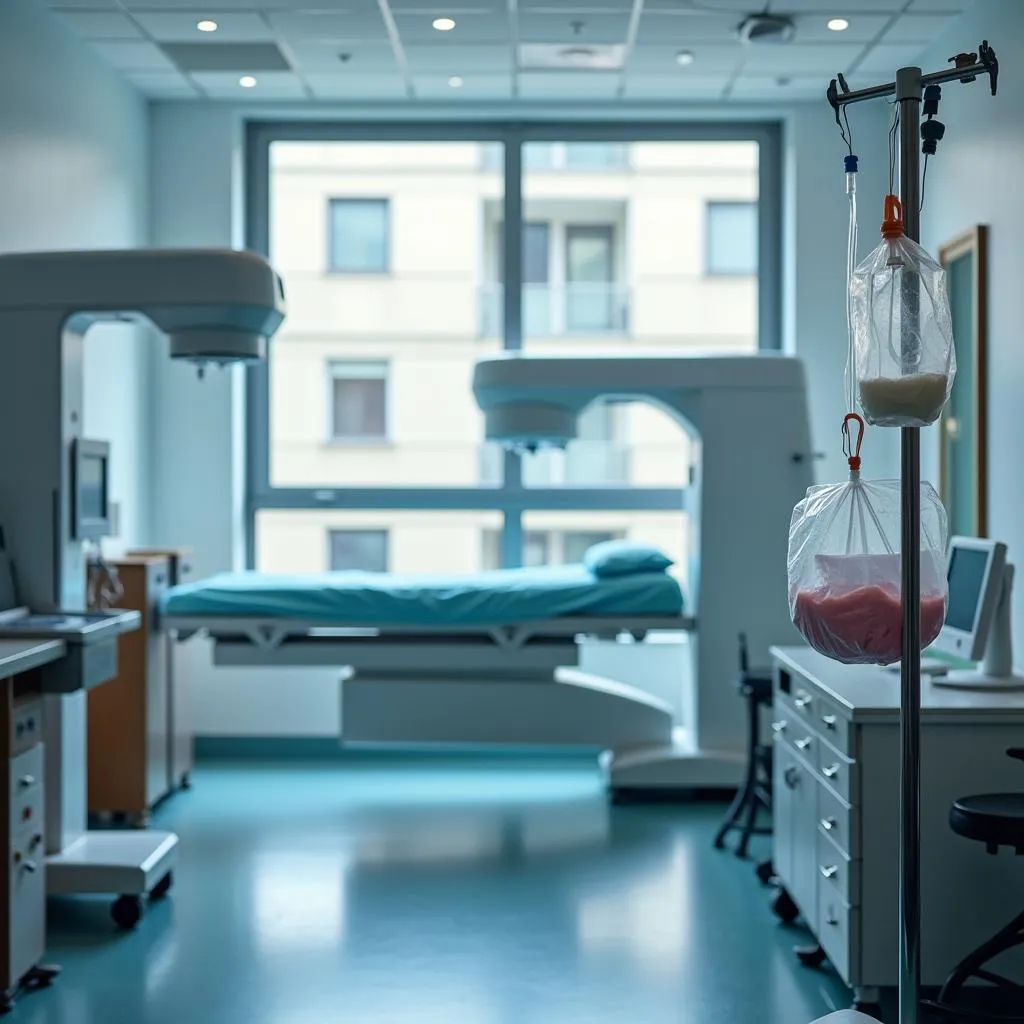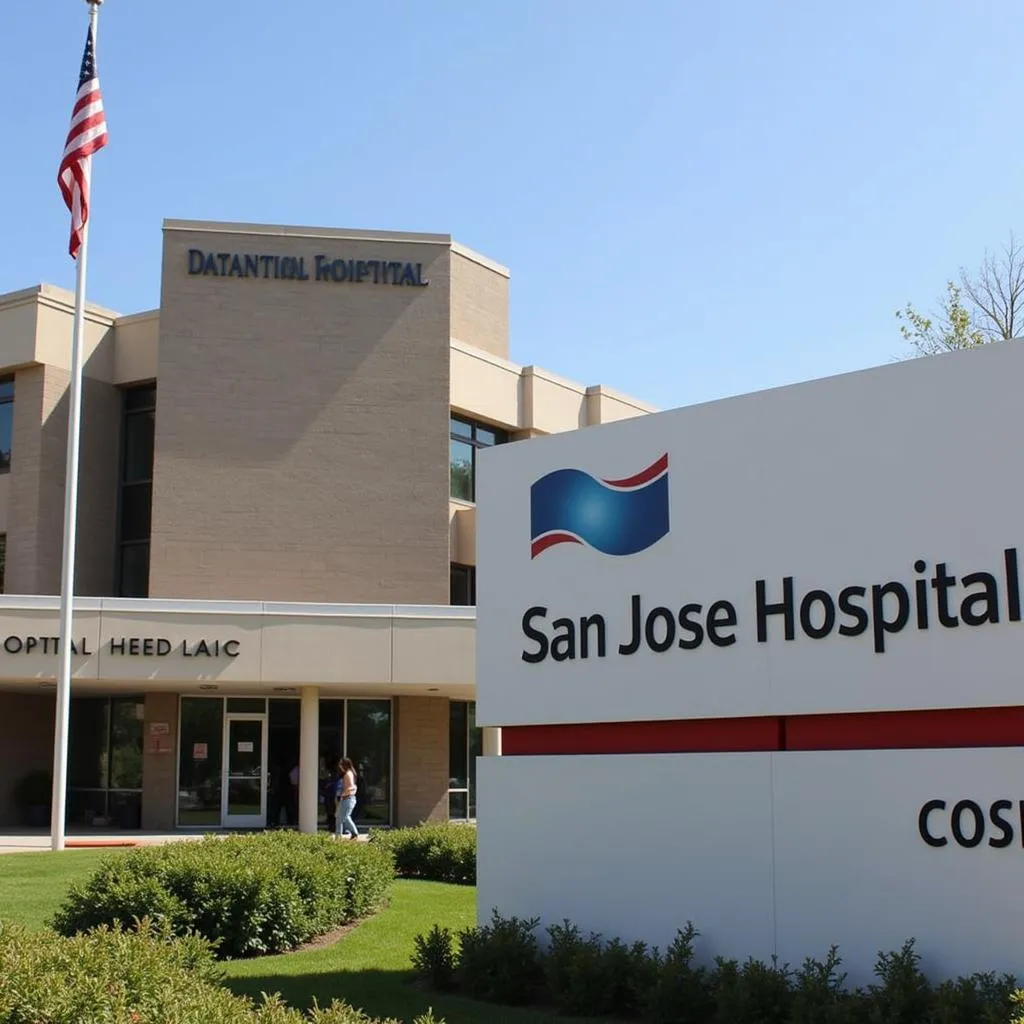Being Rushed To The Hospital is a stressful experience. Whether you’re experiencing a medical crisis yourself or accompanying a loved one, the situation can feel overwhelming. Understanding the typical procedures and having some idea of what to expect can help you feel more prepared and in control. This article outlines the common steps involved when someone is rushed to the hospital, providing valuable insights into emergency care.
The Emergency Room: Your First Stop
When you arrive at the hospital’s emergency room, often after a frantic call to 911, the first point of contact is the triage nurse. This experienced professional plays a crucial role in assessing the severity of your condition and determining the order in which patients receive care.
Triage: Quick Assessment, Prioritized Care
Triage, derived from the French word for “sorting,” involves a rapid evaluation of your symptoms. The nurse will ask about your medical history, current medications, and the specific reason you were rushed to the hospital.
 Emergency Room Triage
Emergency Room Triage
Be prepared to describe your symptoms clearly and concisely. For instance, instead of saying “I feel bad,” try to be specific: “I have a sharp pain in my chest,” or “I’m having difficulty breathing.” This allows the triage nurse to make a more accurate assessment.
Vital Signs and Initial Tests
The triage nurse will check your vital signs: temperature, heart rate, blood pressure, and respiratory rate. These provide essential information about your current physical condition. Depending on your symptoms, you might also undergo initial tests like an electrocardiogram (EKG) for chest pain or a blood sugar check for diabetic emergencies.
Waiting: A Time of Uncertainty
After triage, there might be a waiting period before you’re seen by a doctor. This doesn’t necessarily reflect the severity of your condition. The emergency room prioritizes patients based on the urgency of their needs, and those with life-threatening conditions will always be seen first.
Examination and Diagnosis: Getting to the Root of the Problem
When a doctor is available, they’ll conduct a thorough examination, ask about your medical history, and review the information gathered by the triage nurse. Depending on your symptoms and the doctor’s initial assessment, you may undergo further diagnostic testing.
 Medical Tests in a Hospital Setting
Medical Tests in a Hospital Setting
These tests could include blood work, X-rays, CT scans, ultrasounds, or other specialized procedures. The goal is to determine the cause of your symptoms so the appropriate treatment can be provided.
Treatment and Care: Addressing Your Medical Needs
Once the doctor has diagnosed your condition, they’ll recommend a course of treatment. This could range from medication and observation to more complex interventions like surgery. The medical team will explain the proposed treatment plan, including potential risks and benefits, and answer any questions you might have.
“In an emergency, time is critical. Don’t hesitate to call 911 or seek immediate medical attention if you or someone around you experiences severe symptoms.” – Dr. Emily Carter, Emergency Medicine Physician
During your time in the emergency room, you’ll be under the care of experienced nurses who will monitor your condition, administer medications, and provide comfort and support. They are your advocates and a valuable resource for information and assistance.
Next Steps: Discharge or Admission
After receiving treatment, you’ll either be discharged home or admitted to the hospital for further care. If your condition is stable and you’re well enough to go home, the doctor will provide discharge instructions. These might include prescriptions for medication, follow-up appointments, and advice on managing your symptoms at home.
 Doctor Explains Discharge Instructions
Doctor Explains Discharge Instructions
If your condition requires ongoing monitoring or specialized treatment, you’ll be admitted to the hospital. The doctor will explain the admission process, and a nurse will take you to your room.
FAQ: Common Questions about Being Rushed to the Hospital
1. What should I bring with me to the hospital?
It’s helpful to bring a list of your medications, allergies, emergency contact information, and insurance cards. If you have time, gather any relevant medical records that might be useful to the medical team.
2. Can a family member stay with me in the emergency room?
Hospital policies vary, but in many cases, a family member or friend is allowed to stay with you in the waiting area and sometimes even in the examination room.
3. What if I don’t have health insurance?
Hospitals are required to provide emergency medical care regardless of your insurance status.
4. How long will I have to wait in the emergency room?
Wait times vary depending on the volume of patients and the severity of their conditions.
5. When can I eat or drink after being admitted?
Your doctor will provide specific instructions regarding eating and drinking, as it may be restricted depending on your condition and treatment plan.
Need Immediate Medical Attention?
 Hospital Exterior with Sign
Hospital Exterior with Sign
For urgent medical concerns, please don’t hesitate to seek immediate help. You can reach our 24/7 care team at San Jose Hospital by calling 02437655121 or emailing [email protected]. We are located at 298 Cau Dien Street, Minh Khai, Bac Tu Liem, Hanoi, Vietnam.
For more information on specific health concerns, visit our website to explore other articles and resources.